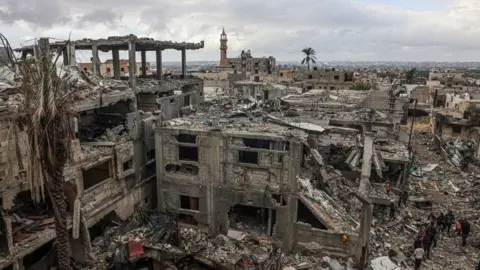Global security agencies are maintaining heightened vigilance following the announcement that Israeli military operations in a targeted area have concluded. This development comes amid ongoing tensions in the Middle East, with Western allies coordinating closely to ensure regional stability.
According to the Israel Defense Forces (IDF), military operations targeting identified threats in neighboring territories were completed earlier today. The Israeli government has characterized these operations as defensive measures intended to disrupt planned attacks and neutralize hostile capabilities in the region (source: Israel Ministry of Defense). Specific operational details were not disclosed, citing national security concerns.

Regional Security Context
The broader Middle East has witnessed persistent instability due to longstanding geopolitical rivalries, sectarian divisions, and competing military interests. Iran and Israel have a well-documented history of adversarial relations, marked by mutual accusations of espionage, cyberattacks, and proxy conflicts in countries such as Syria and Lebanon (source: Council on Foreign Relations).
Recent Israeli operations follow months of reported hostilities, including airstrikes in Syrian territory that Israel has stated target Iranian-linked militia groups (source: BBC). Iran has consistently condemned these strikes, describing them as violations of sovereignty and regional peace.
U.S. Defense Posture and Coordination with Allies
The U.S. Department of Defense has confirmed it is monitoring the security situation in the region and maintaining communication with allies, including members of NATO (source: U.S. Department of Defense). Pentagon officials have emphasized the importance of deterrence and readiness in the face of potential threats to American forces and diplomatic facilities in the Middle East.
In public statements, U.S. defense leaders have reaffirmed their commitment to protecting American personnel and interests, while encouraging de-escalation through diplomatic channels. Although no formal evacuation orders have been issued for diplomatic staff or military personnel, readiness levels at certain bases have been reviewed and adjusted in line with evolving security assessments.
As of publication, the White House has not released a formal briefing specific to today’s developments but has previously underscored its support for Israel’s right to self-defense while calling for restraint to avoid regional escalation (source: White House Statements).

Cybersecurity and Hybrid Threats
Beyond conventional military engagements, experts and government agencies have noted the growing importance of cybersecurity in Middle Eastern security dynamics. Both Israel and Iran have invested heavily in offensive and defensive cyber capabilities, with incidents of cyberattacks targeting critical infrastructure documented by multiple research organizations (source: Carnegie Endowment for International Peace).
In recent years, suspected Iranian state-sponsored groups have been linked to cyber operations against Israeli utilities, transportation networks, and government agencies. Conversely, Israel is believed to maintain advanced cyber-offensive capabilities capable of disrupting adversarial command-and-control systems and surveillance networks.
U.S. Cyber Command and allied defense institutions maintain readiness to assist regional partners in mitigating cyber threats. The Department of Homeland Security continues to advise U.S.-based critical infrastructure operators to remain vigilant, as state-sponsored cyberattacks often have cross-border spillover effects (source: U.S. Cybersecurity and Infrastructure Security Agency (CISA)).
Calls for Calm and Combating Misinformation
As geopolitical tensions flare, officials in the United States and allied countries have urged the public to remain calm and to rely on verified, reputable sources for updates. In recent security crises, unverified rumors on social media have contributed to public confusion and unnecessary alarm.
National security agencies regularly monitor online platforms for signs of coordinated disinformation campaigns, which have been used in the past to undermine public trust and provoke panic. Counter-disinformation efforts include collaboration with technology companies, public service announcements, and fact-checking by independent media organizations (source: NATO StratCom COE).
Public safety agencies emphasize the importance of responsible information sharing, particularly during periods of uncertainty when false or exaggerated claims can spread rapidly. Citizens are encouraged to check official government websites and recognized news outlets for reliable updates.
Diplomatic Efforts to Reduce Tensions
Despite the escalation in rhetoric and military posturing, diplomatic channels remain open. The United Nations has repeatedly called on all parties in the region to exercise maximum restraint and to resolve disputes through dialogue and negotiation (source: United Nations).
Several European governments have also signaled their readiness to support mediation efforts. The European Union has an established role in facilitating the Joint Comprehensive Plan of Action (JCPOA), the 2015 Iran nuclear agreement, though negotiations to revive that deal remain stalled as of 2025 (source: European External Action Service).
The U.S. State Department continues to maintain diplomatic relations with regional partners and has previously expressed interest in preventing further destabilization through diplomatic engagement. While relations with Iran remain strained, indirect communication channels have historically been used to prevent inadvertent escalation.
Military Readiness and Defense Planning
Military analysts note that heightened readiness does not automatically indicate an imminent large-scale conflict. Defense departments routinely conduct planning for various contingencies, including:
-
Protection of diplomatic facilities
-
Evacuation planning for non-essential personnel
-
Enhanced surveillance and intelligence sharing
-
Reinforcement of regional military assets
Such steps are part of standard defense postures designed to ensure preparedness for a range of scenarios, from minor security incidents to more serious confrontations. NATO’s collective defense principles and bilateral defense agreements with countries in the region also support coordinated responses if threats to allied forces arise.
Conclusion: Monitoring Developments with Caution
As of the latest reports, there is no verified evidence of an imminent large-scale military attack by Iran against the United States or its allies. Defense officials emphasize that while vigilance is warranted, credible threat assessments are based on a broad range of intelligence inputs and diplomatic consultations.
Ongoing monitoring by U.S. and allied agencies includes cyber-defense coordination, intelligence sharing, and preparedness for potential diplomatic interventions. Analysts highlight the importance of avoiding alarmist interpretations of routine military readiness measures, which are essential to ensuring the safety of personnel and facilities in volatile regions.
For accurate and up-to-date information, readers are encouraged to follow:
-
Official government and military websites (e.g., defense.gov)
-
Recognized international organizations (e.g., un.org)
-
Reputable news outlets with established editorial standards

